More than a salary survey...
This year we are marking the 100th anniversary of the Pay and Reward report, which was originally conducted by the Royal Institute of Chemistry to report on the pay of chemists following the First World War.
By Sarah Salter, Careers Executive
The initial report was simple – showing pay by age and place of work (industry, government, municipal service or teaching). Today, the report covers much more, including subsectors within the chemical sciences and insights into other aspects of employment – including flexible working and skills development to support and inform your career decisions.
In 2019, we are celebrating the centenary of the first Pay and Reward report, formerly known as Trends in Remuneration.
In order to better understand how you use the report and how it could be improved we asked you for feedback. The comments were very positive and many of you confirmed that you use the report to help plan your career.
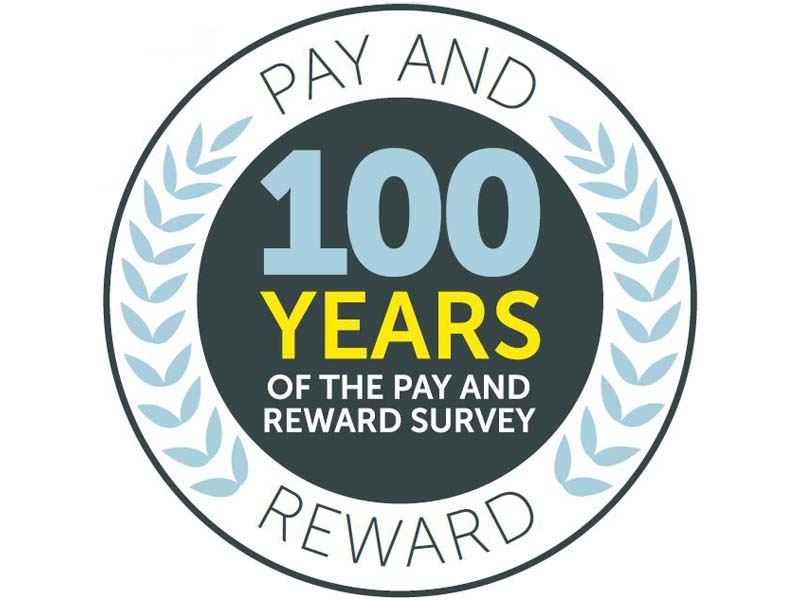
Making evidence-based career decisions
Early career members found the information particularly important for understanding their worth in the job market, making decisions about their career and comparing the pay of different sectors and roles. The comprehensive set of tables allows further interrogation of the data so you are both knowledgeable and supported in negotiating with an employer, or when benchmarking the salaries of your employees.
In addition, the report illustrates the pay and employment benefits across different sectors to help you see which sectors are growing. It can help you understand your worth in the current job market, and provides you with evidence when deciding whether to invest time and money in further qualifications. Interestingly, non-financial benefits were also considered very helpful and we are looking at how to improve this and other role-related information in 2019.
I have found the RSC Pay and Reward survey a powerful resource for career planning. It provided trustworthy guidance as I moved from my PhD studies into the commercial chemistry environment. It also helps me determine if my current remuneration is fair in a world that bombards you with temptation to change job, both social media and recruiters, without definite evidence.
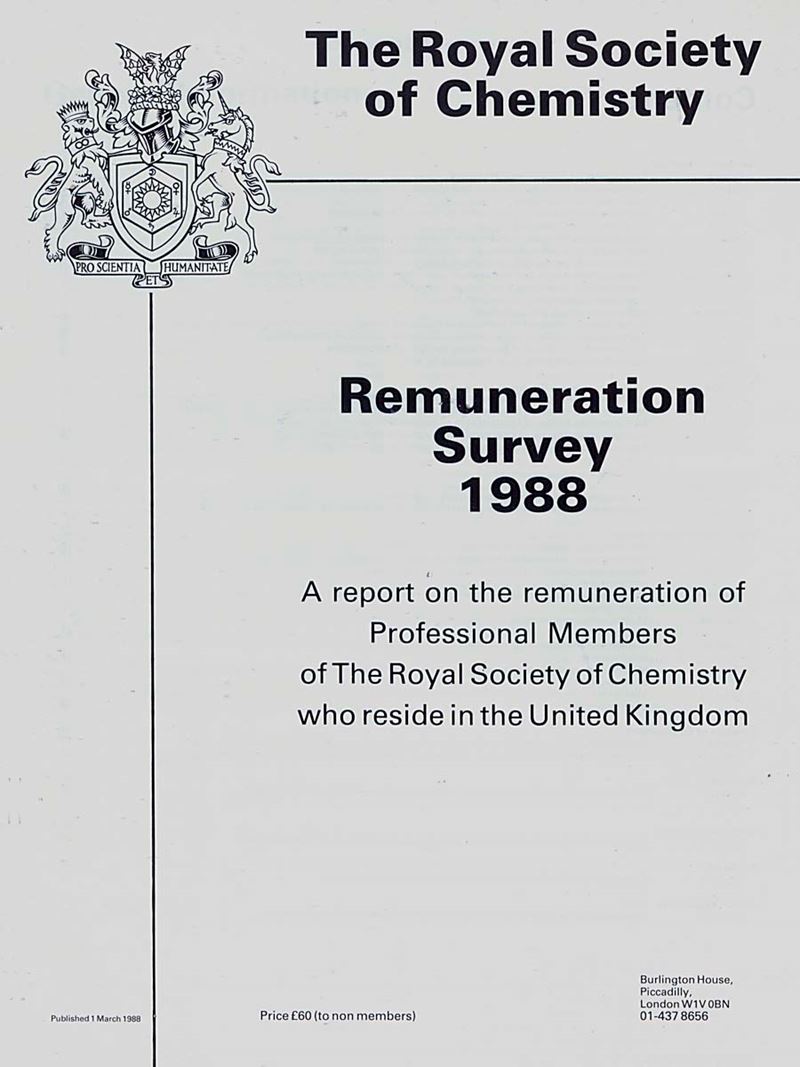
You also told us that the report is highly valued as a trusted and authoritative source, and there is no comparable alternative. Some of you have a sense of responsibility to share your pay and benefits information to support and contribute to the wider membership community. You also expect the Royal Society of Chemistry to collect and publish the salaries and benefits data of members, and for us to use pay and reward information to help you understand the job market and advocate for the chemical sciences.
The report has evolved over the last 100 years and continues to run every two or three years. The 2017 survey was incredibly popular, attracting nearly 7,000 responses to create a robust dataset by the community for the community. In 2017, we changed the format of the published report to include additional commentary around the survey findings, to establish two-year pay and satisfaction trends and looked at how our industry compared in terms of career satisfaction.
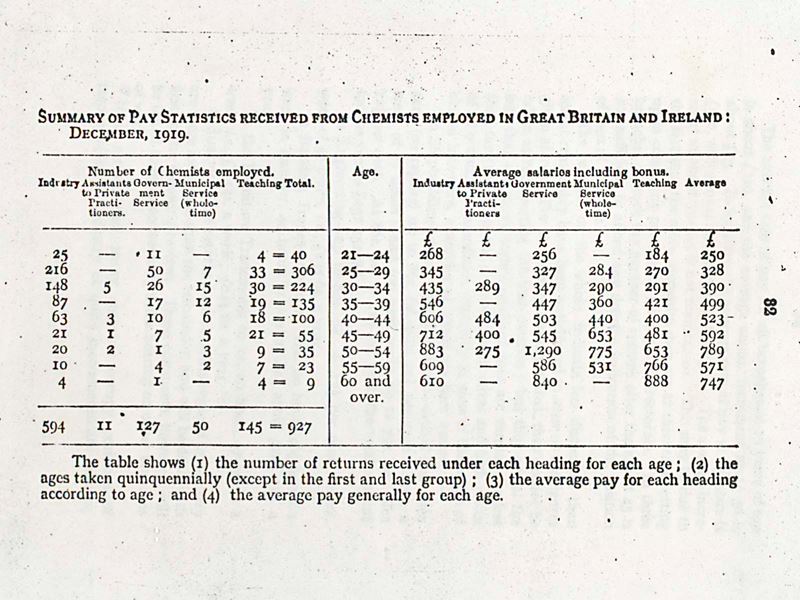
Furthering the profession
Following the first world war, numerous members wrote to the Royal Institute of Chemistry asking for their support in obtaining better recognition and negotiation power for chemists. The disparity between how government chemists and their assistants were recognised and financially rewarded at a time of increasing inflation caused frustration for members when chemistry’s importance went unrecognised. In 1919, following a letter from a member the Institute decided to survey members to collect information about their salaries and employment conditions to document this disparity and support this important cause.
The Council hope that some good may result from the publication of these details, which should provide useful information to employers as well as to their chemists, especially at a time when the need for cordial co-operation and unity of purpose is paramount and the industries of the country are looking to science in an increasing degree to relieve the strain of economic difficulties.
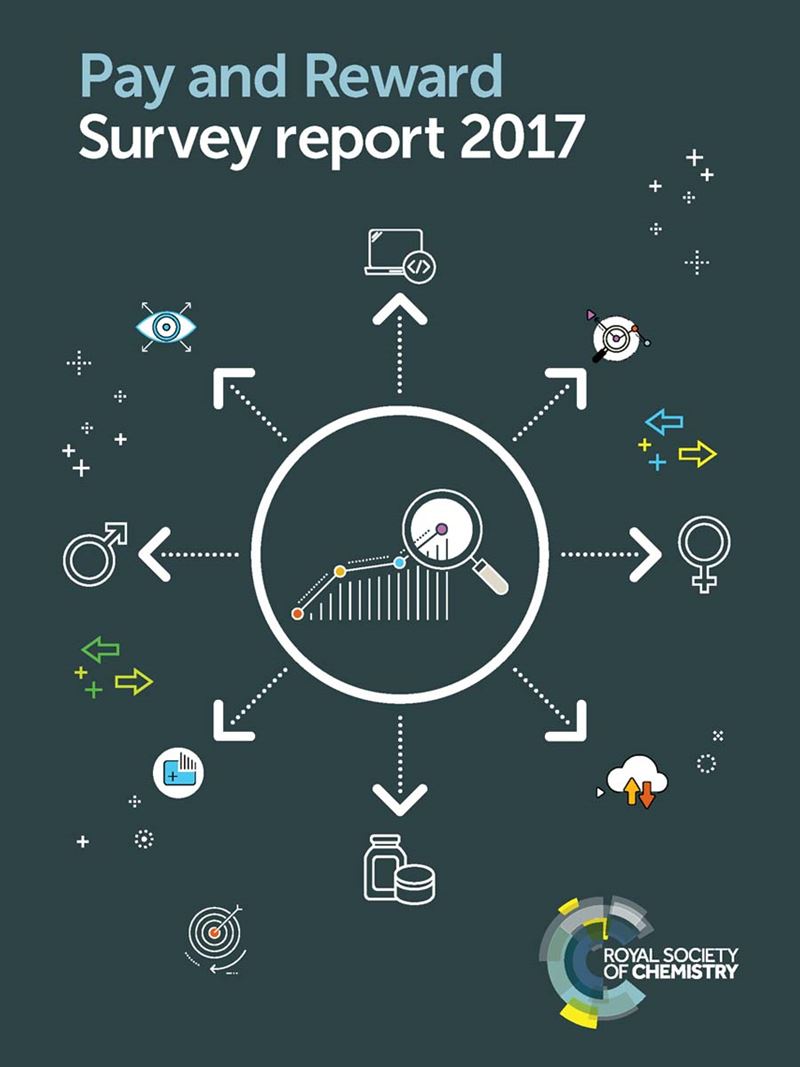
Serving the community
Today, we use this data in line with best practice to inform the development of our expert career management services, and to support our interest groups and local sections – identifying skills needs in their region or sector.
The anonymous data also helps us respond to current political topics such as advising the UK government on immigration changes and teacher retention. This data also highlighted the gender pay gap, which was reported in the Diversity landscape of the chemical sciences report (2018). It also informed our investigations into the different factors that lead to the low representation of women at a leadership level – resulting in a piece of original research and a high-profile advocacy campaign. It is also used by SMEs who facing recruitment issues, and supported a proposal for the introduction of breathing space grants for student members through the Chemist’s Community Fund.
The report may have evolved from its roots to serve a larger and more diverse community but the fundamental reasons why we collect and publish the salary data of members has not changed in the 100 years since it started. By taking part in the pay and reward survey, our members showcase the chemical sciences and the many and varied possible career pathways, allow their peers to make evidence-based decisions about their career, and support our work in furthering our profession. It is much more than a salary survey.
As part of these centenary celebrations we are making the historical pay and reward reports available digitally to you for the first time. Details will be released via the member newsletter later this year – keep an eye out.
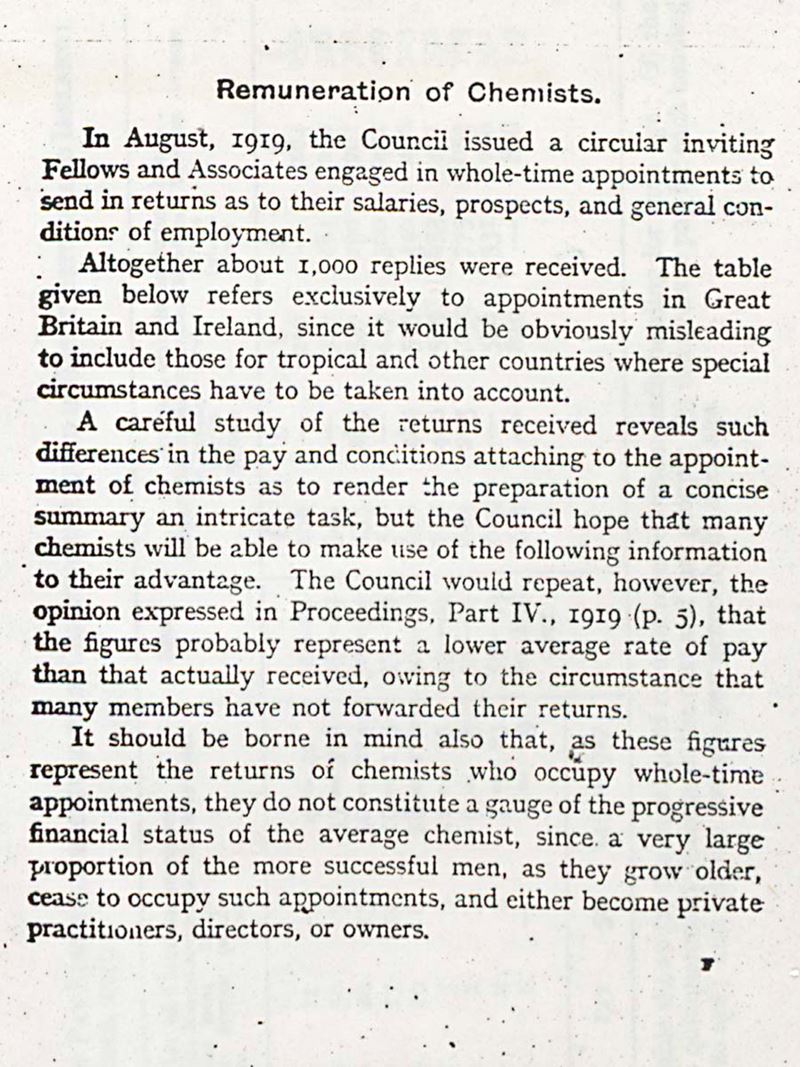
Get involved
Be part of the 100-year history of this important report by taking part in the 2019 survey. The link to participate will be sent to you in mid-June.
The report is only as good as the data we receive so please ensure your discipline is represented. We encourage you to complete the survey so we can continue to build and share this powerful resource with the community.
Press office
- Tel:
- +44 (0) 20 7440 3351
- Email:
- Send us an email
